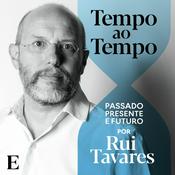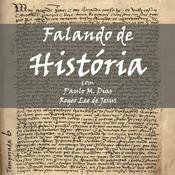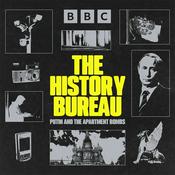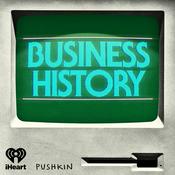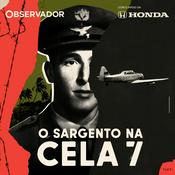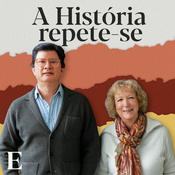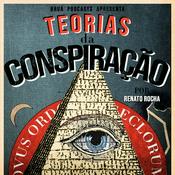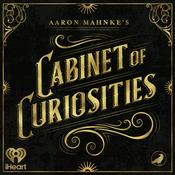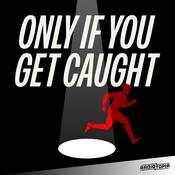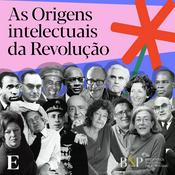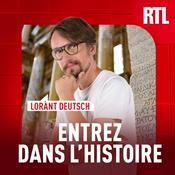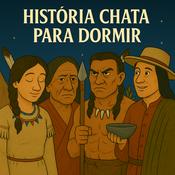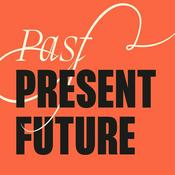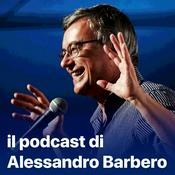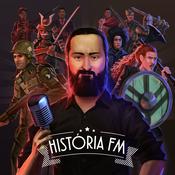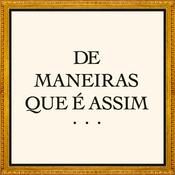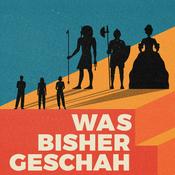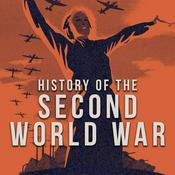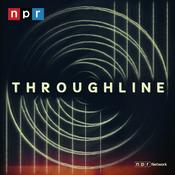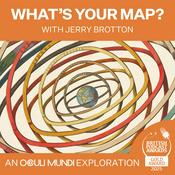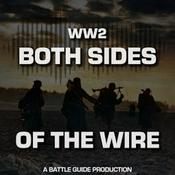2193 episódios
- In 1944, two Austrian mountaineers fled into the forbidden land of Tibet to escape from a prisoner-of-war camp in India.
Heinrich Harrer and his friend Peter Aufschnaiter spent seven years there.
Harrer became a tutor to the young Dalai Lama, Tibet’s spiritual leader.
He later wrote a famous account of his visit called Seven Years in Tibet.
Simon Watts presented and produced this episode in 2016, using interviews with Harrer from the BBC Archive.
Eye-witness accounts brought to life by archive. Witness History is for those fascinated by the past. We take you to the events that have shaped our world through the eyes of the people who were there.
For nine minutes every day, we take you back in time and all over the world, to examine wars, coups, scientific discoveries, cultural moments and much more.
Recent episodes explore everything from the death of Adolf Hitler, the first spacewalk and the making of the movie Jaws, to celebrity tortoise Lonesome George, the Kobe earthquake and the invention of superglue.
We look at the lives of some of the most famous leaders, artists, scientists and personalities in history, including: Eva Peron – Argentina’s Evita; President Ronald Reagan and his famous ‘tear down this wall’ speech; Thomas Keneally on why he wrote Schindler’s List; and Jacques Derrida, France’s ‘rock star’ philosopher.
You can learn all about fascinating and surprising stories, such as the civil rights swimming protest; the disastrous D-Day rehearsal; and the death of one of the world’s oldest languages.
(Photo: Portrait of the young Dalai Lama. Credit: Keystone-France/Gamma-Keystone via Getty Images) - Adriana Lestido, an Argentinian newspaper photographer, captured a mother and her young daughter raising their arms in protest in 1982.
With clenched fists and anguished faces, they were wearing white handkerchiefs tied around their heads representing the struggle for justice for the disappeared during Argentina's military dictatorship.
The photo became a symbol of the resistance and is still used today. It embodies the spirit of the Mothers of the Plaza de Mayo who would meet once a week demanding the return of their loved ones.
Adriana Lestido speaks to Reena Stanton-Sharma about capturing that iconic black and white picture.
Eye-witness accounts brought to life by archive. Witness History is for those fascinated by the past. We take you to the events that have shaped our world through the eyes of the people who were there.
For nine minutes every day, we take you back in time and all over the world, to examine wars, coups, scientific discoveries, cultural moments and much more.
Recent episodes explore everything from the death of Adolf Hitler, the first spacewalk and the making of the movie Jaws, to celebrity tortoise Lonesome George, the Kobe earthquake and the invention of superglue.
We look at the lives of some of the most famous leaders, artists, scientists and personalities in history, including: Eva Peron – Argentina’s Evita; President Ronald Reagan and his famous ‘tear down this wall’ speech; Thomas Keneally on why he wrote Schindler’s List; and Jacques Derrida, France’s ‘rock star’ philosopher.
You can learn all about fascinating and surprising stories, such as the civil rights swimming protest; the disastrous D-Day rehearsal; and the death of one of the world’s oldest languages.
(Photo: Adriana Lestido's Madre y Hija from 1982. Credit: Adriana Lestido) - In 1980, toxic shock syndrome (TSS) emerged as a public health crisis among women who used tampons.
There were hundreds of cases, and The Centers for Disease Control linked deaths from TSS to super-absorbent tampons.
The Food and Drug Administration responded by assembling a ‘Tampon Task Force’ in 1982 to develop safety standards.
A researcher called Nancy King Reame was recruited to run the independent laboratory testing. Her work helped establish the first national absorbency standards for tampons. Golda Arthur speaks to Nancy King Reame.
Eye-witness accounts brought to life by archive. Witness History is for those fascinated by the past. We take you to the events that have shaped our world through the eyes of the people who were there.
For nine minutes every day, we take you back in time and all over the world, to examine wars, coups, scientific discoveries, cultural moments and much more.
Recent episodes explore everything from the death of Adolf Hitler, the first spacewalk and the making of the movie Jaws, to celebrity tortoise Lonesome George, the Kobe earthquake and the invention of superglue.
We look at the lives of some of the most famous leaders, artists, scientists and personalities in history, including: Eva Peron – Argentina’s Evita; President Ronald Reagan and his famous ‘tear down this wall’ speech; Thomas Keneally on why he wrote Schindler’s List; and Jacques Derrida, France’s ‘rock star’ philosopher.
You can learn all about fascinating and surprising stories, such as the civil rights swimming protest; the disastrous D-Day rehearsal; and the death of one of the world’s oldest languages.
(Photo: Tampons. Credit: Getty Images) - During World War Two, whilst Norway was occupied by Nazi Germany, a group of Norwegian sailors set up a base on the Shetland Islands and began aiding their country’s resistance.
Named “The Shetland Bus” they made perilous journeys across the North Sea in fishing boats - smuggling agents, equipment and ammunition into Norway.
Their most famous skipper was Leif Larsen. He made more than 50 journeys to and from occupied Norway during the war and became one of the highest decorated naval officers of World War Two.
Tim O’Callaghan tells his story using archive interviews Leif gave to the BBC in 1981 and 1985.
Eye-witness accounts brought to life by archive. Witness History is for those fascinated by the past. We take you to the events that have shaped our world through the eyes of the people who were there.
For nine minutes every day, we take you back in time and all over the world, to examine wars, coups, scientific discoveries, cultural moments and much more.
Recent episodes explore everything from the death of Adolf Hitler, the first spacewalk and the making of the movie Jaws, to celebrity tortoise Lonesome George, the Kobe earthquake and the invention of superglue.
We look at the lives of some of the most famous leaders, artists, scientists and personalities in history, including: Eva Peron – Argentina’s Evita; President Ronald Reagan and his famous ‘tear down this wall’ speech; Thomas Keneally on why he wrote Schindler’s List; and Jacques Derrida, France’s ‘rock star’ philosopher.
You can learn all about fascinating and surprising stories, such as the civil rights swimming protest; the disastrous D-Day rehearsal; and the death of one of the world’s oldest languages.
(Photo: The Shetland Bus crew, Leif Larsen second from left next to agent in white coat. Credit: David Howarth) - In November, 1966, Florence suffered one of the worst floods in its history after heavy rainfall caused the River Arno to burst.
The Italian city was submerged under tons of mud, rubble and sewage, leaving thousands homeless and destroying around 14,000 art treasures, and millions of books and manuscripts.
Among those who came to the rescue were the so-called ‘mud angels’ – young people from around the world who wanted to help in the clean-up.
Antonina Bargellini, then the 22-year-old daughter of the city’s mayor, recalls days of deep mud and stinking streets. She tells Jane Wilkinson about what happened.
Archive from BBC, British Pathe and Associated Press, plus Florence: Days of Destruction, directed by Franco Zeffirelli in 1966.
Eye-witness accounts brought to life by archive. Witness History is for those fascinated by the past. We take you to the events that have shaped our world through the eyes of the people who were there.
For nine minutes every day, we take you back in time and all over the world, to examine wars, coups, scientific discoveries, cultural moments and much more.
Recent episodes explore everything from the death of Adolf Hitler, the first spacewalk and the making of the movie Jaws, to celebrity tortoise Lonesome George, the Kobe earthquake and the invention of superglue.
We look at the lives of some of the most famous leaders, artists, scientists and personalities in history, including: Eva Peron – Argentina’s Evita; President Ronald Reagan and his famous ‘tear down this wall’ speech; Thomas Keneally on why he wrote Schindler’s List; and Jacques Derrida, France’s ‘rock star’ philosopher.
You can learn all about fascinating and surprising stories, such as the civil rights swimming protest; the disastrous D-Day rehearsal; and the death of one of the world’s oldest languages.
(Photo: Flooded street in Florence, 1966. Credit: Giorgio Lotti/Mondadori via Getty Image)
Mais podcasts de História
Podcasts em tendência em História
Sobre Witness History
Eye-witness accounts brought to life by archive. Witness History is for those fascinated by and curious about the past. We take you to the events that have shaped our world through the eyes of the people who were there. For nine minutes every day, we take you back in time and all over the world, to examine wars, coups, scientific discoveries, cultural moments and much more. Recent episodes explore everything from how the Excel spreadsheet was developed, the creation of cartoon rabbit Miffy and how the sound barrier was broken.We look at the lives of some of the most famous leaders, artists, scientists and personalities in history, including: the moment Reagan and Gorbachev met in Geneva, Haitian singer Emerante de Pradines’ life and Omar Sharif’s legendary movie entrance in Lawrence of Arabia.You can learn all about fascinating and surprising stories, like the invention of a stent which has saved lives around the world; the birth of the G7; and the meeting of Maldives’ ministers underwater. We cover everything from World War Two and Cold War stories to Black History Month and our journeys into space.
Sítio Web de podcastOuve Witness History, Tempo ao Tempo e muitos outros podcasts de todo o mundo com a aplicação radio.pt
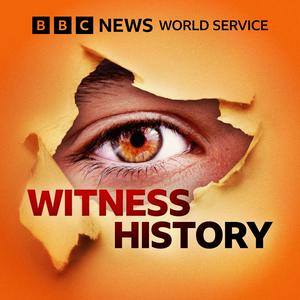
Obtenha a aplicação gratuita radio.pt
- Guardar rádios e podcasts favoritos
- Transmissão via Wi-Fi ou Bluetooth
- Carplay & Android Audo compatìvel
- E ainda mais funções
Obtenha a aplicação gratuita radio.pt
- Guardar rádios e podcasts favoritos
- Transmissão via Wi-Fi ou Bluetooth
- Carplay & Android Audo compatìvel
- E ainda mais funções


Witness History
Leia o código,
descarregue a aplicação,
ouça.
descarregue a aplicação,
ouça.


